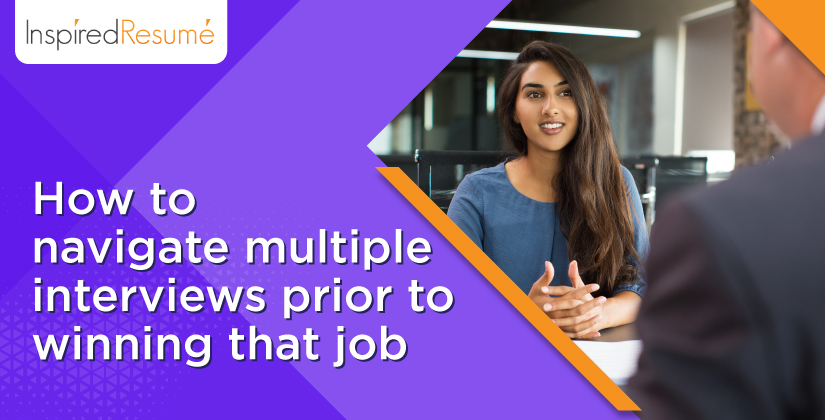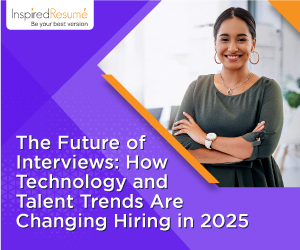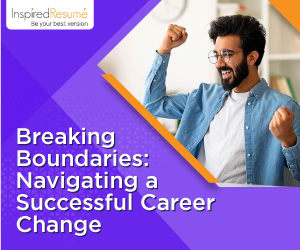Job hunting has always been hard – both on one’s morale AND on a person’s multi-tasking capabilities. Many job-seekers are on the hunt for better opportunities, while working full-time. So tracking the progress of various job applications, scheduling interviews so that they do not conflict with the work timings of the current job, and preparing for the interview questions you’re likely to face – it all add up to a double shift!
Figures vary depending on where you source statistics from, but according to Forbes, in the US (where unemployment ranged around 3.5% towards 2022 end), 118 people apply for one job opening, and about 20% of applicants get an interview call. Considering this statistic, you begin to understand why you need to apply for multiple jobs, in parallel.
Post-pandemic, with fears of a looming recession and amidst mass lay-offs in the tech industry caused by companies over-hiring during the lockdown, looking for the ideal job now requires new strategies.
In a Time magazine article on how challenging the market is for job seekers, Michael Cook, a gaming professional who had worked at the same company for 10 straight years, suddenly found himself among those laid off. His accounts of the frustrating experiences he faced – applying for countless jobs, being asked to create a project that the company used on its website (but didn’t pay him for), one company dragging out the process across months and six interviews, etc – echo the escapades of many others in the job market.
Are you preparing for your upcoming job interview? If so, be sure to check out our blog post on how to answer the interview question 'Why Are You Looking for a New Job'.
Why multiple interviews?
First of all, let’s try to understand why companies schedule so many separate interviews. As anyone who has gone through campus placements for their first jobs, the two-step sequence to getting a job offer typically involves the following: first, a written test to gauge technical or subject matter capabilities. If a candidate cleared that, a group discussion was arranged to evaluate soft skills like speaking with confidence and clarity, the ability to engage with a group using cogent arguments and persuasiveness, etc.
So that’s pretty much the logic followed at hiring for all levels of an organization, but as one clocks up experience, the sequence of the 2 interviews gets switched.
Of course, the 2-interview model does not always apply. For more senior roles, the number of interviews could go up to four. If a person is approached by a staffing agency based on a LinkedIn profile, or on account of being on their database, even for junior positions, it would require one interview with the staffing firm, and then two with the company actually hiring candidates. So preparations for the last two interviews would be on how to face typical HR interview questions.
The first step: The behavioural interview
Earlier in one’s career, testing a person’s capabilities came before gauging soft skills or a personality fit. This was because candidates had no experience to vouch for their capabilities. Further down a candidate’s career journey, the interview process often begins with the behavioural interview. This is because at this stage, candidates can post their certifications on relevant topics on their LinkedIn profiles vouching for their mastery of the subject. While their longer CVs and experience vouch for a lot, lot more.
So what do we know about in-person or Zoom interviews?
- Job interviews usually last between 45 and 90 minutes.
- Since roughly 40% of people lie in their resumes, interview questions are often designed to catch candidates out. If you’ve been upfront and honest in your CV, you have nothing to worry about on this count.
- Most important, you only have 7 seconds to make a good first impression! So do take care about appearances too, to ensure you’re well-groomed
By understanding what hirers look for during behavioural interviews, it makes it easier to prepare for them.
- In this type of interview, hirers are trying to evaluate not just your past track record, but also the key lessons you took away from important milestones.
- Did you view winning a new contract as an example of you “acing it”, or a result of being in a great, collaborative team?
- How you present your work experience gives interviewers an understanding of how you could fit in at the new job.
- Typically, interviewers may ask you to share instances of how you've overcome challenges or successfully solved a problem. Though the situation you may choose to talk about may be technical in nature, what interviewers are looking for is your approach to problem-solving – what choices did you evaluate and then veto; how much did you collaborate with your teammates during this process; when pushed back during the interview about why you selected Option 1 instead of Options 2 or 3, how well were you a) able to defend your choice or b) how open were you to criticism or to acknowledging that you might have not explored all options, prior to making a decision.
The behavioral interview is a common part of the job search process. In order to do well in this type of interview, it's important to have a strong career summary. Check out our blog post on how to write a career summary with examples.
Knowing that this is what hirers for from the behavioural interview, helps you. Now, you can prepare for typical interview questions with answers showcasing events from your own career that demonstrate your problem-solving and critical thinking capabilities. Pick two to three such events, and map out how you would present them in an engaging story-like manner – highlighting looming deadlines; struggles you faced (if any); the process of trial-and-error that you and your teammates went through before arriving at the solution, etc.
And if challenged by interviewers about why Option Y or X hadn’t crossed your mind, think carefully before you answer. While presenting the rationale for your past choices, if confident, you can openly discuss what you know and don’t know about the options suggested by the interview panel. This will come across as honest and authentic, while also showcasing you as someone who is willing to admit you don’t know something and are ready to learn.
Competency-based interviews
If you clear the behavioural interview and reassures the interview panel that your personality type is a good fit for the job, the competency-based interview follows. Prior to even applying for the job, evaluate how well your own capabilities mesh with what the job requires.
It can be very disheartening if you aim too high, applying for jobs that require skills that you neither possess nor can acquire quickly, even through an intense online course.
So even if you are well versed in the subject, still, prepare for the kind of test you might expect. Go online and search for potential interview questions for such a job profile. Try answering them on your own. This gives you a clear idea of your current strengths and weaknesses. If the second interview is scheduled a week later, set aside time to read enough and practise such that you at least overcome some aspects of your weaknesses, if any.
Many hirers understand that capabilities can be picked up quickly through niche and intense L&D initiatives, but finding the right personality with the appropriate team spirit and soft skills is harder.
So giving your competency test your best shot, yet coming away feeling you haven’t aced it, can still land you the job! Just because many companies give greater weightage to the behavioural interview.
Not sure how to highlight your past experiences in your resume? Get your resume reviewed by a professional at InspiredResume.com
What next?
Well, post the 2nd interview, it’s a waiting game. The average time between the first interview call and getting an offer letter is between 24 days to a month. But some companies might schedule more than two interviews.
If that is the case, check with the HR contact person about what to expect; why more interviews are being scheduled and how long the overall process might take. This is important, because you might get calls from other places you’ve applied to - or even got an offer letter from a company, which you might have wanted to evaluate against the potential offer from the firm you’ve just finished two interviews with. Letting the recruiter/HR person very politely know that like them, you too are evaluating multiple options, could speed up the process.
And do stay posted for more inputs on typical interview questions, preparing answers to interview questions and other googlies that can emerge through the hiring process – as you may have already discovered, every job search is different.
We hope you found this blog post helpful. For more job hunting tips, be sure to follow our Linkedin page for updates.




